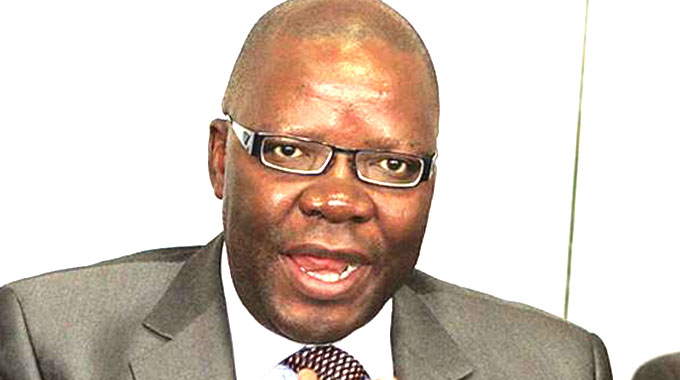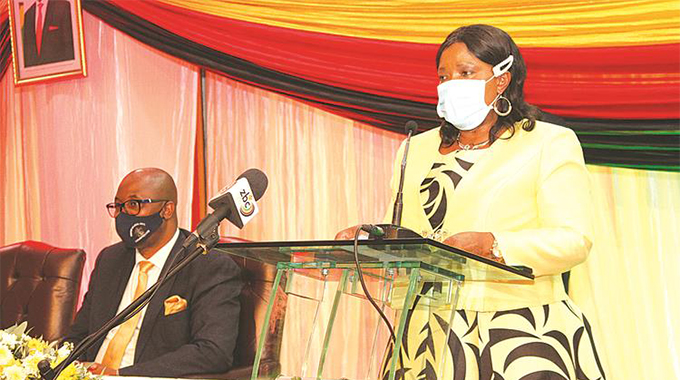The road to healing for youths

A better appreciation of the history of conflict in Zimbabwe is critical for the country to forgive, heal, and achieve dialogue and reconciliation.
During a focus group discussion of members drawn from a network of Christians in Harare at the weekend, National Peace and ReconciliationCommissioner, Dr Choice Ndoro, observed how important it was for youths to play a significant role in inputting to efforts aimed at the nation achieving healing, reconciliation and dialogue.
She presented on the issue of “Understanding Zimbabwe’s Reconciliation Journey” and suggested that youths participation could be two-fold; attending nation-wide sessions being held by the National Peace and Reconciliation Commission (NPRC); and making written submissions to the Commission.
However, youth participation during and submissions to the NPRC, Dr Ndoro suggested, needs to be informed by historical origins and causes of conflict in this country.
She began by outlining the history of conflict in countries such as Ghana, Kenya and Sierra Leone and the resolution mechanisms employed. Then she focused on the region, tracing the origins of conflict.
Her stating point was the 10th century movement from Mapungubwe, across the Limpopo.
While countries showed goodwill towards Zimbabwe, she explained, it would be worthwhile to understand that there is no country in the world with the interests of another country at heart more than its own interests.
In the case of Zimbabwe, youths would do better to remember that because the country is resource-rich, has good weather and rainfall, the potential for conflict would always be present.
The suggestion she is making is the need to be alive to how colonial perspectives frame history and current society, ensuring that the history of colonisation that brought us to the present circumstances is erased.
This strategy seeks to ensure amnesia over the history of indigenous dispossession and displacement.
The issue of how nations leverage their natural resources, is ongoing in most countries, and in offering an alternative, Dr Ndoro suggested that there were lessons to be learnt from Botswana.
The neighbouring country, she suggested had avoided conflict by embracing its natural resources as a blessing and distributed them equitably for the benefit of its nationals.
Speaking after the focus group discussion, Harriet Masvosva, a student from the African Leadership University, Mauritius, said she was “speechless”.
She attended as part of a group of students from the Youth Leadership Forum Zimbabwe.
“I think I speak for all the youths that were present, when I say I have never been as speechless as I was from Dr Choice Ndoro’s presentation to the raw vulnerability that speakers braved to exhibit, finishing off with a much needed self-introspection.
“Despite having attended previous focus group sessions, I believe this one was my paradigm shift.
“I have always been a strong advocate for the truth. Better to save the truth than to save it for when one is beyond redemption. However, on Saturday, though my truth was correct in itself, it was not the full truth.
“I realised that I had only known the truth that I was told, the truth I had spent three years soaking in from history books, and the truth I saw on various forms of media.
“The reality that what I had once known to be true, was not in fact the whole truth. To learn that there were different dimensions to the truth and I only knew a quarter of it, was both discomforting and refreshing.
“At the end of the day I sighed heavily and laughed at the fact that I don’t actually know everything. My biggest take was that information truly is power and how it is disseminated depends on who the beholder is.
“The Zimbabwean narrative that is told each generation is different and holds less water each time it is retold. The narrative has been uniformed according to the people that have relayed it, and unless we hear the full story, most of us will die thinking that we have always been right and everyone else wrong – a perfect example of binary thinking.
“One must be privy to their communities’ opinions and experiences, so that we may reach a common ground. In our quest for truth, let us not only seek to think outside the box, but also around it. That way, we can be assured that our opinions are holistic and true. That if we were to take away our feelings and experiences, what will remain is the truth, not a truth.
“The Zimbabwe we want is one where all races agree to let go of the burden of the past and allow themselves respect and celebrate their differences.”
For Masvosva, there were three take-away lessons from the focus group discussion: Learn as much as you can; Engage and network; and Get comfortable with being uncomfortable.







Comments